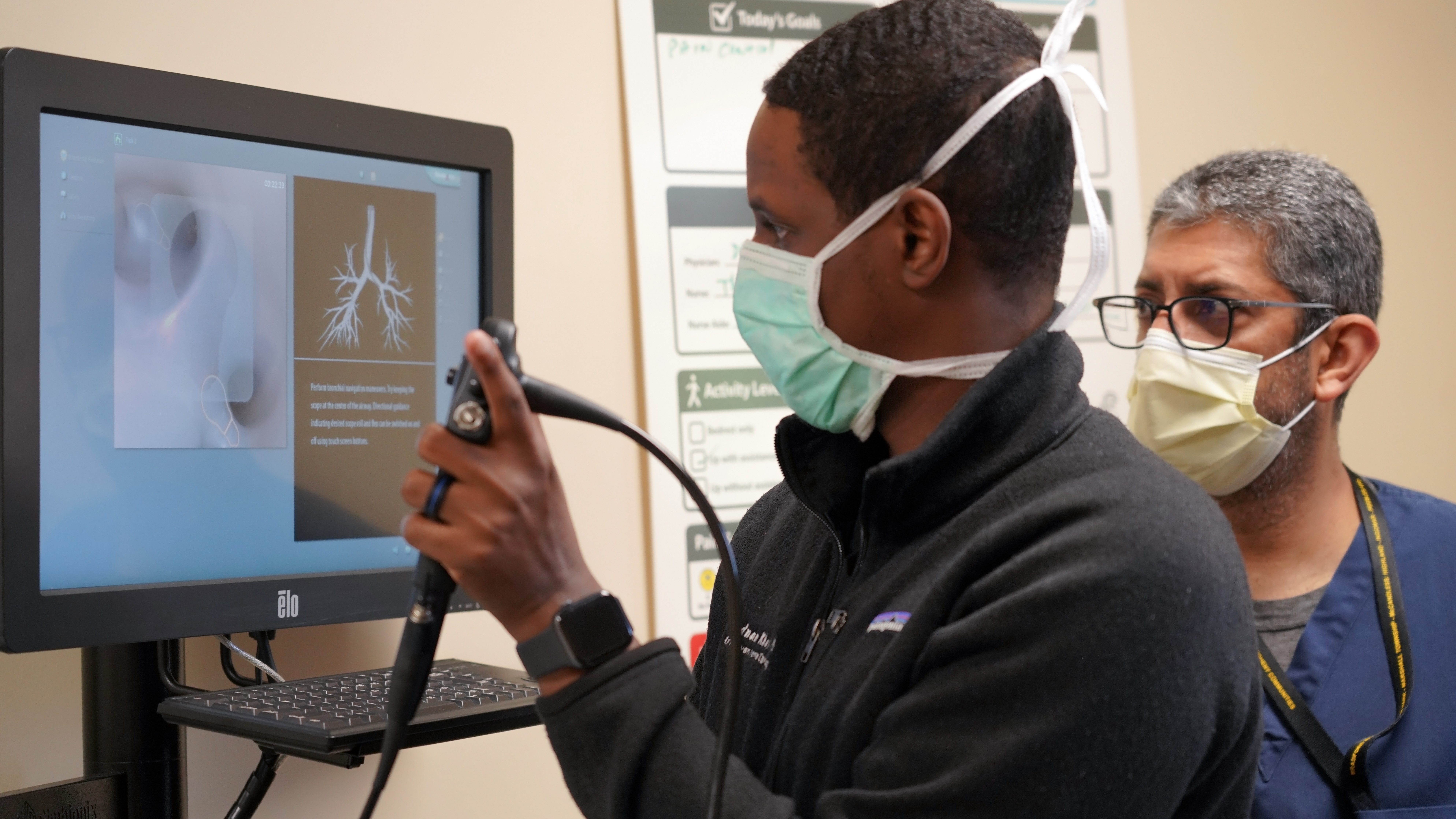The objective of this program is to provide an advanced fund of knowledge and specialized skills in the management of critically ill patients for critical care board certification eligibility and provide training for fellows interested in leading in the field of cardiovascular critical care medicine. The program follows the ACGME/ABIM critical care curricular guidelines.
Fellows spend several months in the Medical Intensive Care Unit, Cardio-thoracic Surgical Intensive Care Unit, and Cardiac Intensive Care Unit working alongside Intensivists with backgrounds in Pulmonary Critical Care, Cardiac Surgery, Anesthesiology and Surgical Critical Care. The faculty provides opportunities for the fellow to acquire an in-depth knowledge of critical care as well as advanced clinical skills in the post-operative care of cardiac surgical patients. Fellows will function as an integral member of the ICU team and are responsible for the initial assessment, plan and follow up of all patients. Additional rotations in Neuro intensive care unit, and Trauma intensive care unit further allow for the fellow to acquire critical care skills.
The program offers excellent clinical exposure as well as directed, expert instruction, promoting self-directed education, and fostering the refinement of the fellow’s scientific and academic pursuits. Educational opportunities are tailored to suit the needs and interests of each fellow and consist of a combination of mentoring, monthly journal clubs, evidenced based case presentations, morbidity and mortality conferences, CCM topic/board review along with one on one fellow driven topics for medical knowledge gaps.
|
PGY-6 |
|
|---|---|
|
Medical Intensive Care |
5 blocks |
|
Cardiovascular/Thoracic ICU |
3 blocks |
|
Trauma ICU |
1 block |
|
Neurosurgical ICU |
1 block |
|
CCU/Echo/Advanced Heart Failure |
2 block |
|
Anesthesiology |
1 block |
|
Night Float – CT ICU - MICU |
5 weeks |

Each fellow will participate in:
This rotation allows the fellow to gain airway skills in the non-emergent setting. Skills include bag mask ventilation, LMA insertion, and endotracheal intubation with direct laryngoscopy and glidescope.
To be eligible to apply for the Cardiology Critical Care Track, physicians must have:
Interested applicants should email a letter of interest and curriculum vitae in October to:
Sharon Mastele, Fellowship Program Coordinator
For questions, please call (412) 359-5136